At ATYP, we pay our utmost respect to the traditional owners of this land we live and work on, and their elders past and present. It would be irresponsible not to acknowledge that we benefit from stolen land, nor to acknowledge the painful reality of the situation unfolding in the United States or the years of oppression and systemic racism that have led up to these events. We also recognise the same issues are faced by our Indigenous community and people of colour across Australia.
To help navigate this confronting, maybe confusing and painful time, we have put together a non-exhaustive list of resources for our community and those who would like to educate themselves further, take action, or donate.
Please note: Aboriginal and Torres Strait Islander people should be aware that some of these links may contain images, voices or names of deceased persons.
Read:
- Many resources can be found on the AIATSIS (Australian Institute of Aboriginal and Torres Strait Islander Studies) website
- Discover our shared history on the Australians Together website
- Deaths Inside – a database from Guardian Australia which tracks every known Indigenous death in custody in every jurisdiction from 2008 – 2019
- We asked five Indigenous teenagers what National Sorry Day means to them – Article via ABC North West QLD
- Welcome to Country by Marcia Langton – an inclusive guidebook to Indigenous Australia and the Torres Strait Islands
- Healing Foundation – has lots of information and resources on Stolen Generations, intergenerational trauma, community healing, and more
- Indigenous deaths in custody: 25 years since the Royal Commission into Aboriginal Deaths in Custody – a paper examining the trends and characteristics of Indigenous deaths in custody since 1991–92
- Children’s books such as I Love Me by Sally Morgan & Ambelin Kwaymullina and Sorry Day by Coral Vass and Dub Leffler
- All Together Now – evidence-based projects that promote racial equity. Kids Together Now is a section on their site with information and resources like an app aimed to reduce the incidences of racism among children.
- An Anti-Racist Reading list – put together by Ibram X. Kendi, author of Stamped From the Beginning: The Definitive History of Racist Ideas in America and How to Be an Antiracist
- Critical Race Theory – an explainer by IndigenousX
- Asylum Seeker Resource Centre – Australia’s largest human rights organisation providing support to people seeking asylum.
- Walking Together – a resource list from ABC to help Australians assist with Reconciliation when they don’t know how
- Why I’m No Longer Talking To White People About Race by Reni Eddo-Lodge – Exploring issues from eradicated black history to the inextricable link between class and race, Reni Eddo-Lodge has written a searing, illuminating, absolutely necessary examination of what it is to be a person of colour in Britain today.
- My Tidda, My Sister: Stories of Strength and Resilience from Australia’s First Women by Marlee Silva – shares the experiences of many Indigenous women and girls, brought together by Marlee Silva. The voices of First Nations’ women that Marlee weaves through the book provide a rebuttal to the idea that ‘you can’t be what you can’t see’. For non-Indigenous women, it demonstrates the diversity of what success can look like and offers an insight into the lives of their Indigenous sisters and peers.
- Me and White Supremacy: How to Recognise Your Privilege, Combat Racism and Change the World by Layla Saad – Between June and July 2018, Layla Saad ran a 28-day Instagram challenge under the hashtag #MeAndWhiteSupremacy, for people with white privilege to unflinchingly examine the ways that they are complicit in upholding the oppressive system of white supremacy. This workbook was born out of that challenge.
- Sunshine Behavioural Health’s Mental Health Issues Facing the Black Community – a resource exploring how and why racism causes mental health issues among black people and the importance of culturally competent care.
This is a collection of some of the most poignant and powerful speeches relating to Australia's Indigenous history. All these years later, they're still relevant.
Warning to Aboriginal & Torres Strait Islanders that this package contains images and voices of deceased persons. pic.twitter.com/BhPrbC1ih4— The Project (@theprojecttv) June 2, 2020
Donate/Volunteer:
If you are able to, here is a non-exhaustive list of groups, organisations, and more that you can donate time or money to.
- Yothu Yindi
- NASCA (National Aboriginal Sporting Chance Academy)
- AIATSIS
- Cairns Indigenous Art Fair
- Seed Mob
- Pay The Rent
- Darwin Aboriginal Art Fair
- Wirringa Baiya – Aboriginal Women’s Legal Centre
- Healing Foundation
- The Indigenous Literacy Foundation
- Aboriginal Legal Service NSW/ACT
- Sisters Inside
- Elizabeth Morgan House Aboriginal Women’s Services Inc
- Children’s Ground
- Change the Record
- National Justice Project
- Deadly Connections Community and Justice Services Inc.
- The Northern Australia Aboriginal Justice Agency
- Wunan
- Bridging the Gap Foundation
- National Aboriginal and Torres Strait Islander Women’s Alliance
- ANTaR
- Black Rainbow
- Aboriginal Charity guide
- Indigenous Allied Health Australia
- Watch this video if you do not have the capacity to make a financial donation. The creators will donate all ad revenue to various organisations supporting Black Lives Matter and protester bail funds in the United States. Make sure any adblockers are disabled.
Act:
- Volunteer with the organisations above, reach out to your local Indigenous groups.
- If you would like to participate in a peaceful protest, you will be able to find lists on social media and many news websites. At this time in particular, please remember your state’s gathering limitations regarding COVID, remember to social distance and wear personal protective gear, do your research, and be safe.
- Send letters or emails to your local Members of Parliament urging them to acknowledge the government’s role in creating and maintaining systemic oppression, and to take actions to lift Aboriginal voices, do more to prevent Aboriginal deaths in custody, and much more. An example template can be found here.
Think:
- Challenge any racist thinking that you hear – it is often subconscious – whether it be your own or from someone else
- Have difficult conversations with family and friends around racism. What do they think? Why do they think that?
- Think about your place in society. Does it afford you privilege? What does that privilege look like? How can you use your privilege to help lift marginalised voices instead of talking over them?
- How can you actively reduce racism in Australia?
Other:
- Watch television shows and films that celebrate Indigenous stories. NITV is a free-to-air network with programs that celebrate Indigenous culture, challenge perceptions, and facilitate debate. Series like ABC’s Black Comedy is now in its fourth season and is a comedic exploration of what it means to be black in contemporary Australia.
- Watch documentaries about race. Here’s a list of 10 covering the African American and Aboriginal Australian experiences.
- Watch Uncomfortable Conversations with a Black Man – an ongoing series by Emmanuel Acho explaining the Black Lives Matter movement, racial inequality, and answering common and taboo questions.
- Buy books, clothing, items made by Indigenous writers, artists, business owners. Supply Nation is a national directory of Aboriginal and Torres Strait Islander businesses.
- Follow BIPOC (Blak/Black and Indigenous People of Colour) on Instagram and Twitter. IndigenousX on Twitter and ABC Indigenous, BlakBusiness on Instagram are starting points and examples
- Listen to stories and podcasts by Black and Indigenous people. Gamilaroi woman Marlee Silva of Tiddas 4 Tiddas has started a podcast series, ‘Always was, always will be our stories‘, inspiring conversations with Indigenous role models. Koori Radio 93.7FM is Sydney’s only First Nations radio station broadcasting 24/7. Bobo and Flex is a podcast by two young black women on a quest to decolonize our minds, intersect our feminism, and dish out some solid advice on staying away from problematic boys.
- Listen to the music of Indigenous artists like Briggs, Birdz, Thelma Plum, Dhapanbal Yunupingu, and so many more.
- Sign petitions. There are many appearing, and it allows you to support local and international causes.
_______________________
This is not by any means a definitive list. We encourage you to look up local organisations and initiatives that are more accessible to you.
It’s up to all of us – Black, white, everyone – no matter how well-meaning we think we might be, to do the honest, uncomfortable work of rooting it out. — Michelle Obama
References:
Dodson, Shannan 2019, Indigenous issues can be daunting – here are 10 positive ways to engage, Triple J Hack, <https://www.abc.net.au/triplej/programs/hack/here-are-10-positive-ways-to-engage-with-indigenous-issues/10885222>.
Triple J Hack 2020, Here are the practical ways you can support Aboriginal Lives Matter, ABC News, <https://www.abc.net.au/triplej/programs/hack/practical-ways-you-can-support-aboriginal-lives-matter/12308386>.
Wahi, Sukriti 2020, How To Become A Better Ally To People Of Colour, ELLE Australia, <https://www.elle.com.au/news/black-lives-matter-ally-23575>.
Gannoni A & Bricknell S 2019. Indigenous deaths in custody: 25 years since the Royal Commission into Aboriginal Deaths in Custody. Statistical Bulletin no. 17. Canberra: Australian Institute of Criminology. https://aic.gov.au/publications/sb/sb17
Kendi, Ibram X. 2019, An Antiracist Reading List, The New York Times, <https://www.nytimes.com/2019/05/29/books/review/antiracist-reading-list-ibram-x-kendi.html>.
Shutack, Corrine 2017, 75 Things White People Can Do for Racial Justice, Medium, <https://medium.com/equality-includes-you/what-white-people-can-do-for-racial-justice-f2d18b0e0234>.
Readings, Books to help you understand & fight white supremacy, Readings, <https://www.readings.com.au/collection/books-to-help-you-understand-and-fight-white-supremacy>.

